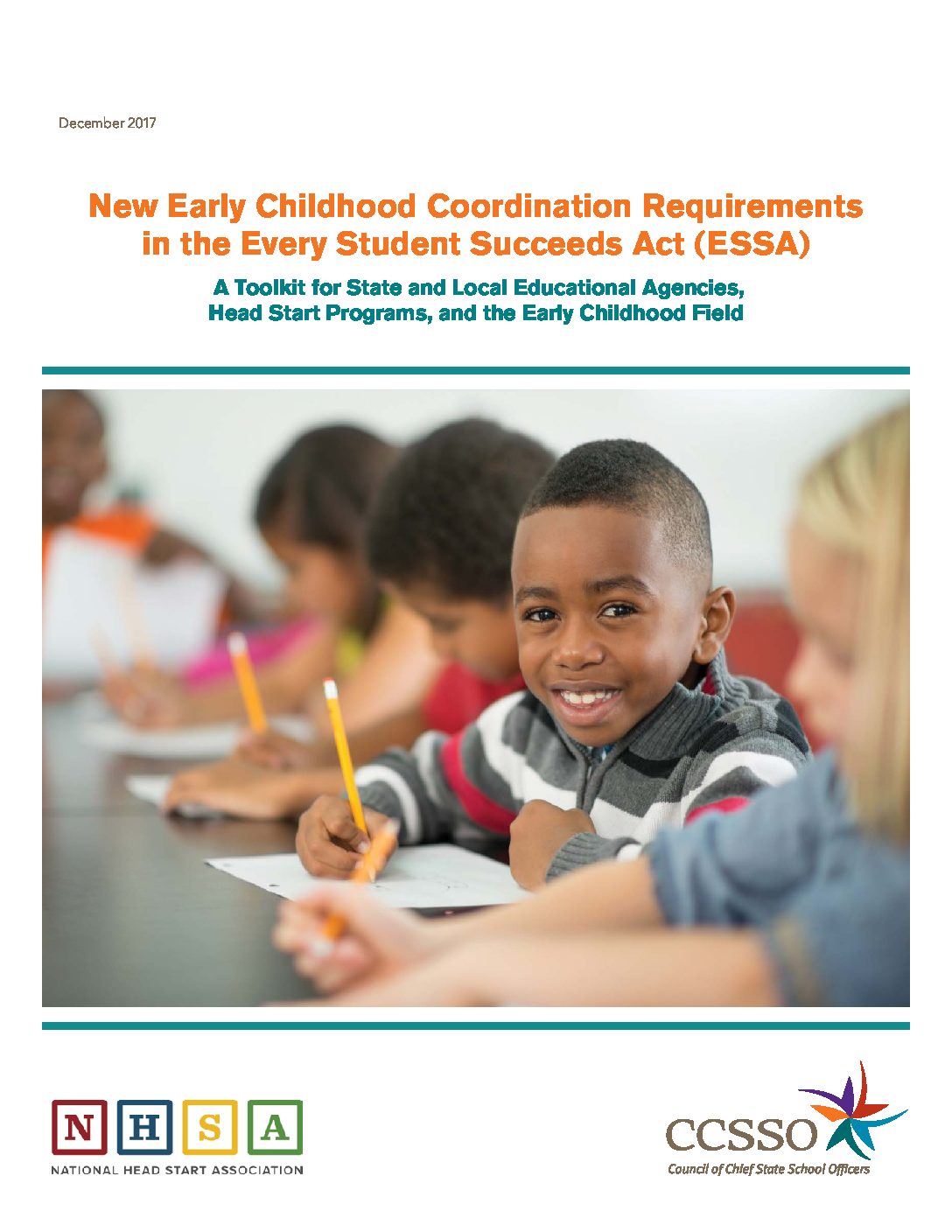Children and families experience a number of challenges when moving from an early childhood setting like Head Start to elementary schools. This toolkit, created in partnership with the Council of Chief State School Officers (CCSSO), will help educators remove some of those obstacles.
Strong coordination among educational partners can reduce child stress, increase family involvement, and help schools maintain the social, emotional, and educational gains children achieve through Head Start. NHSA is proud to partner with CCSSO in helping schools realize the potential envisioned in the Every Student Succeeds Act (ESSA) for a seamless educational experience for young children.
This toolkit is designed to help school districts meet federal requirements when they formally partner with Head Start and other early childhood education providers to facilitate the transition of children from early childhood settings to kindergarten.
What kinds of information and resources are included?
The toolkit provides information and resources to guide state and local educational stakeholders in developing coordination agreements. In addition to outlining the applicable language on coordination contained in federal law, the 92-page toolkit includes:
- specific actions and activities state educational leaders can take to facilitate coordination at the local level;
- guidance for local educational agencies (LEAs) and early childhood partners, including Head Start programs, on how to develop effective coordination agreements;
- tips on how to draft a strong, actionable memorandum of understanding (MOU) on coordination, as well as sample MOUs;
- best practices on how education staff and other leaders can help children and families make the transition into kindergarten;
- examples of successful early childhood-LEA coordination partnerships; and
- resources for overcoming challenges and barriers to coordination.
More about the Every Student Succeeds Act
Signed into law in December of 2015, the Every Student Succeeds Act (ESSA) amends the federal Elementary and Secondary Education Act (ESEA) to require LEAs that receive Title I funds to develop written agreements with Head Start and other early childhood providers to increase coordination.
While the federal Head Start Act requires Head Start programs to pursue such agreements, it did not similarly compel LEAs to enter into them. As a result, nearly 18% of Head Start programs in 2016 had no formal agreement with the LEAs in their community, according to data from Head Start’s Program Information Report. Increasing the participation of schools was a driving factor motivating Congress to adopt reciprocal coordination agreement requirements for LEAs in the Every Student Succeeds Act.

